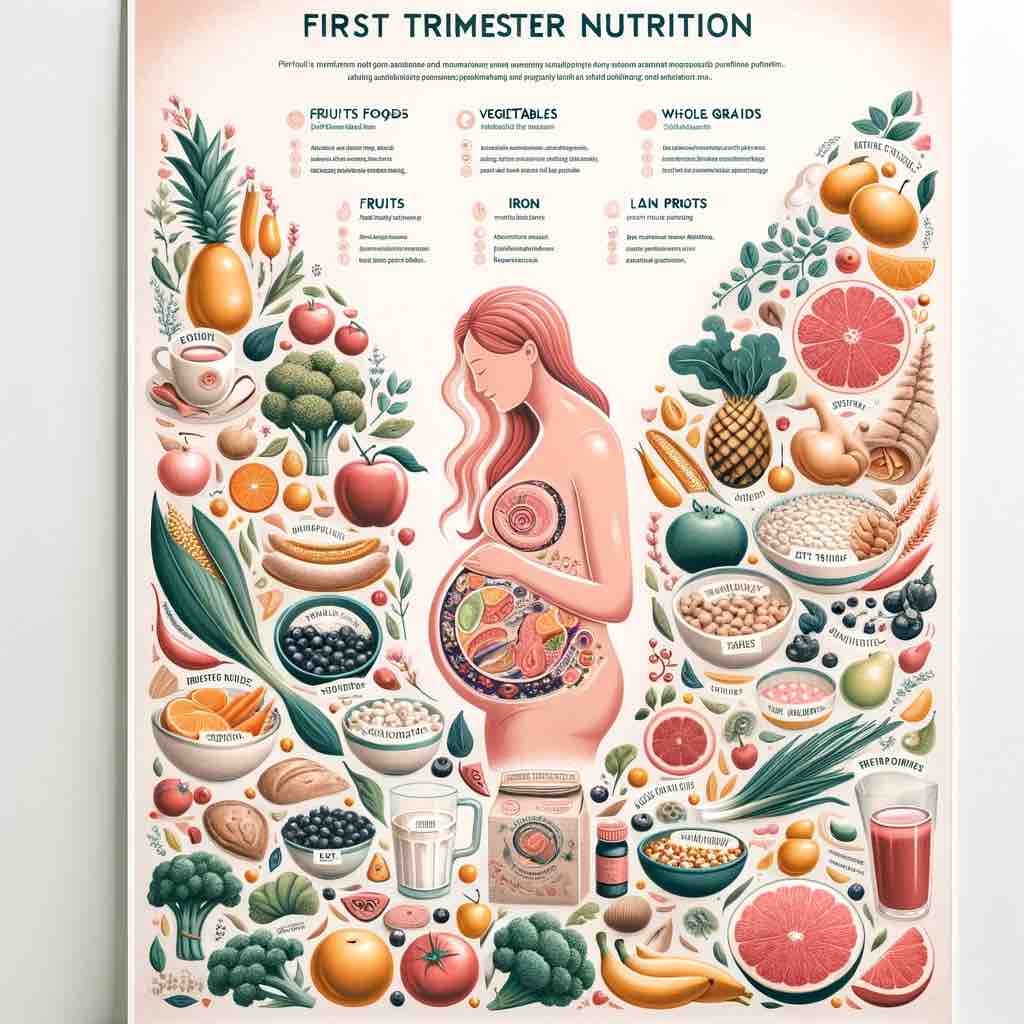
Embarking on the journey of pregnancy is a beautiful experience, but morning sickness can often be a challenging hurdle. Fear not, for your culinary rescue is here with an expanded array of unique and delightful snack ideas! Let’s dive deeper into flavors and textures that not only calm your tummy but also bring joy to your taste buds.
1. The Ginger Magic Elixir – Expanded:
- Let’s Innovate: How about a ginger-honey granola bar? Homemade granola bars laced with ginger and a touch of honey offer the perfect balance of spice and sweetness, making them an ideal snack for on-the-go moms.
- Extra Tip: If you’re into baking, try incorporating ground ginger into banana bread for a subtle, stomach-soothing spice.
2. Protein-Packed Powerhouses – More Ideas:
- Think Outside the Box: Imagine a mini platter of cheese cubes, hard-boiled eggs, and a handful of almonds. This protein trio can help stabilize your blood sugar levels and keep nausea at bay.
- Creative Bite: How about a quinoa salad with lemon vinaigrette? Quinoa is not only rich in protein but also gentle on the stomach, and lemon adds a refreshing touch to combat nausea.
3. Cooling Coconutty Delight – Dive Deeper:
- A New Twist: Consider a coconut-mango parfait. Layer coconut yogurt with diced mangoes and a sprinkle of chia seeds. This tropical delight is not just tasty but also rich in vitamins and fiber.
- Fun Experiment: Freeze coconut water with bits of fruit to create your own hydrating popsicles. They are perfect for those particularly tough mornings.
4. The Ultimate Comfort Snack – More Comforting Choices:
- Soothing Soup: A light pumpkin soup with a hint of nutmeg can be both comforting and nutritious. Pumpkin is easy on the stomach and packed with essential nutrients.
- Warm Delight: Try a sweet potato mash topped with a sprinkle of cinnamon and a drizzle of maple syrup for a heartwarming snack.
5. The Savory Sipper – Enhanced Flavors:
- Herbal Harmony: Add a twist to your vegetable broth with herbs like rosemary or basil, known for their digestive properties. A warm cup of this aromatic broth can be a great start to your day.
- Soup Surprise: Explore a mild lentil soup garnished with coriander. Lentils are a good source of protein and fiber, making them an excellent choice for pregnant moms.
Bonus Tips for Snack-Time Success:
- Stay Hydrated: Alongside these snacks, remember to stay hydrated. Herbal teas like chamomile or peppermint can be soothing for your stomach and provide a calming effect.
- Small Portions: Opt for small, frequent meals instead of large ones. This can help manage nausea more effectively.
- Texture Matters: Sometimes, the texture of food can trigger nausea. Explore different textures – crunchy, smooth, creamy – and find what suits you best.
- Listen to Your Body: Each pregnancy is unique. What works for one person may not work for another. Pay attention to how your body responds to different foods.
These snack ideas are not just about nourishing your body; they’re about embracing the joy of eating, even in the face of morning sickness. They combine the wisdom of Ayurveda with modern nutritional insights to offer you a diverse palette of choices. Happy snacking, and here’s to a joyful and healthy pregnancy journey! 🍏🥑🥥🍞🥗
FAQs
- Can ginger snacks exacerbate heartburn?
- While ginger can soothe nausea, it may exacerbate heartburn in some individuals. If you experience heartburn after consuming ginger, try smaller amounts or switch to a milder snack option.
- Are protein-rich snacks essential during pregnancy?
- Yes, protein is crucial for the development of the baby and the health of the mother. Including protein-rich snacks can also help stabilize blood sugar levels, which may reduce nausea.
- Is it safe to consume dairy products like Greek yogurt during pregnancy?
- Dairy products are generally safe and beneficial during pregnancy unless you’re lactose intolerant or have been advised otherwise by your healthcare provider.
- Can I have herbal teas for morning sickness relief?
- Yes, certain herbal teas like ginger, peppermint, and chamomile can be soothing. However, it’s important to choose teas that are safe during pregnancy and to consult with your healthcare provider.
- How can I ensure I stay hydrated if I’m struggling with morning sickness?
- Try sipping on small amounts of water throughout the day, and include hydrating foods like watermelon and cucumber in your diet.
- What should I do if I have food aversions to recommended snacks?
- Listen to your body and eat what feels right to you. Food aversions are common during pregnancy, and it’s important to find alternatives that you can tolerate.
- Are there any snacks to avoid during pregnancy?
- It’s best to avoid snacks high in sugar and artificial ingredients. Also, steer clear of any foods that are unsafe during pregnancy, such as unpasteurized cheeses and certain types of fish.
- How often should I snack to manage morning sickness?
- Eating small, frequent meals and snacks throughout the day can help manage nausea. Try to eat every 2-3 hours.
- Can I make these snacks in advance for convenience?
- Absolutely! Preparing snacks in advance can make it easier to eat regularly, especially on days when you’re feeling more nauseous.
- What if morning sickness is severe and I can’t keep any food down?
- If you’re experiencing severe morning sickness and are unable to keep food down, it’s important to consult with your healthcare provider for further guidance.
Blog Tags: Pregnancy Snacks, Morning Sickness Relief, Healthy Eating During Pregnancy, Nausea-Fighting Foods, Nutritional Snacks for Pregnant Women, Ginger Remedies, Protein-Rich Snacks, Hydration Tips, Herbal Teas in Pregnancy, Managing Food Aversions










